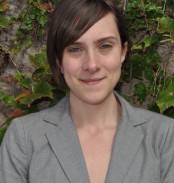Arts & Entertainment
Queery: Kat Skiles
The lesbian web designer answers 20 gay questions

Kat Skiles is starting to get the sense that she’s stumbled into something. Her new website lezgettogether.com — she built if over the hurricane weekend — is doing healthy early traffic.
A free Facebook-esque site for D.C.-area lesbians, it’s earned about 160 members in its first month and is adding more daily.
“Everybody who’s seen it has been like, ‘Oh my gosh, yeah, we’ve needed this,'” Skiles says.
She got the idea after struggling to make friends upon moving to Washington herself in 2008. She says her first few years here were spent “looking desperately” for a diverse gathering space. She kept coming up dry.
“Facebook is awesome, bars and nightlife are great, but I think there really is a need for a specific, separate space where lesbians of all different ages and demographics can mingle,” she says.
And why is this so hard with D.C.’s strong LGBT population? Why doesn’t it seem to be a problem for gay men?
“I don’t know,” Skiles says. “It’s a good question and I’m sure there all kinds of great conversations to be had about that.”
The upstart costs have been minimal but she hopes to soon have it up and running on its own through ad sales. She didn’t conceive of it as a business venture but she would like it to be self sustaining. The first gathering is planned for Oct. 21. Members will meet at 6:30 at Solly’s Tavern for the inaugural “lesbian attack,” a monthly event where they’ll gather at a straight bar for the evening.
Skiles, a 26-year-old Salt Lake City native, is an online communications director for the U.S. House. She loves working on the Hill and has long been fascinated by politics. She’s also the communications director for the LGBT Congressional Staff Association.
Skiles studied religion and politics at Northern California’s Dominican University but came to D.C. for an internship in 2006 and “fell in love with it.”
Skiles is in a relationship and lives in Columbia Heights. She enjoys pick-up basketball, working out, Scrabble and American history. (Blade photos by Michael Key)
How long have you been out and who was the hardest person to tell?
I don’t know that I ever really “came out.” Being gay was just this thing I started doing one day.
Who’s your LGBT hero?
Tammy Baldwin.
What’s Washington’s best nightspot, past or present?
Chi Cha Lounge on U Street. It is second to none.
Describe your dream wedding.
The Jefferson Memorial. It is going to happen.
What non-LGBT issue are you most passionate about?
Veterans issues are near and dear to my heart. Three generations of my family have fought in wars with the United States Army, most recently my brother in Iraq.
What historical outcome would you change?
The legal institution of slavery in the earliest years of American history.
What’s been the most memorable pop culture moment of your lifetime?
The night Nancy Pelosi took the Speakership. I’m a big fan of firsts for women in general and I really admire Pelosi, but I also campaigned myself ragged that election cycle. I felt so a part of the victory. It was all very moving.
On what do you insist?
Standing up for what’s right, even if it is awkward.
What was your last Facebook post or Tweet?
I’ve been working really hard to get the word out aboutLezGetTogether.com and so I’ve posted the link all over Facebook and Twitter a million times. You probably should too. Go on… go on…
If your life were a book, what would the title be?
“The Girl Who Preferred Her Hoodie to An Umbrella”
If science discovered a way to change sexual orientation, what would you do?
I would join the Tea Party in declaring science a hoax. Actually, no. I would just declare science a hoax.
What do you believe in beyond the physical world?
My views about the non-physical world are rooted in staying focused on the here and now. I read this beautiful book a few years ago called “Way of the Peaceful Warrior” that sums it up pretty well. My favorite section says, “Wake up! If you knew for certain you had a terminal illness — if you had little time left to live — you would waste precious little of it! Well, I’m telling you, you do have a terminal illness. It’s called birth. You don’t have more than a few years left. No one does! So be happy now, without reason or you will never be at all.”
What’s your advice for LGBT movement leaders?
As we continue advancing equality, it’s important to recognize the value of lending a hand to others along the way. Our LGBT family is a canvas of diversity and that means we have to fight in every instance of discrimination — men for women, whites for minorities, rich for poor and so on. We pick up ourselves when we pick up others.
What would you walk across hot coals for?
A Democratic majority in the House of Representatives. If that option were to become unavailable I’d go for a jar of Nutella and a spoon.
What LGBT stereotype annoys you most?
I studied religion in college and grew up in a family of Irish Catholics so I have a particular irritation with those who mischaracterize the message of Christ and push forward with such ferocity that which is clearly hateful and discriminatory. I suppose I shouldn’t be too hard on those folks though, because when Jesus sees that the gays aren’t pulling their weight in contributing to overpopulation and dogs start marrying bunnies, Armageddon is likely to ensue — or something like that.
What’s your favorite LGBT movie?
“Kissing Jessica Stein”
What’s the most overrated social custom?
That it’s impolite to speak about religion or politics. Great. Let’s just talk about the weather or what time the mail comes. Why would I want to hear about the values and ideas that most significantly shape who you are? This social custom seems a bit ridiculous.
What trophy or prize do you most covet?
I’d like to run for D.C. City Council.
What do you wish you’d known at 18?
All that studying would actually pay off.
Why Washington?
I fell in love with this town a long time ago. I’ll grow old here.
Sports
US wins Olympic gold medal in women’s hockey
Team captain Hilary Knight proposed to girlfriend on Wednesday

The U.S. women’s hockey team on Thursday won a gold medal at the Milan Cortina Winter Olympics.
Team USA defeated Canada 2-1 in overtime. The game took place a day after Team USA captain Hilary Knight proposed to her girlfriend, Brittany Bowe, an Olympic speed skater.
Cayla Barnes and Alex Carpenter — Knight’s teammates — are also LGBTQ. They are among the more than 40 openly LGBTQ athletes who are competing in the games.
The Olympics will end on Sunday.
Movies
Radical reframing highlights the ‘Wuthering’ highs and lows of a classic
Emerald Fennell’s cinematic vision elicits strong reactions

If you’re a fan of “Wuthering Heights” — Emily Brontë’s oft-filmed 1847 novel about a doomed romance on the Yorkshire moors — it’s a given you’re going to have opinions about any new adaptation that comes along, but in the case of filmmaker Emerald Fennell’s new cinematic vision of this venerable classic, they’re probably going to be strong ones.
It’s nothing new, really. Brontë’s book has elicited controversy since its first publication, when it sparked outrage among Victorian readers over its tragic tale of thwarted lovers locked into an obsessive quest for revenge against each other, and has continued to shock generations of readers with its depictions of emotional cruelty and violent abuse, its dysfunctional relationships, and its grim portrait of a deeply-embedded class structure which perpetuates misery at every level of the social hierarchy.
It’s no wonder, then, that Fennell’s adaptation — a true “fangirl” appreciation project distinguished by the radical sensibilities which the third-time director brings to the mix — has become a flash point for social commentators whose main exposure to the tale has been flavored by decades of watered-down, romanticized “reinventions,” almost all of which omit large portions of the novel to selectively shape what’s left into a period tearjerker about star-crossed love, often distancing themselves from the raw emotional core of the story by adhering to generic tropes of “gothic romance” and rarely doing justice to the complexity of its characters — or, for that matter, its author’s deeper intentions.
Fennell’s version doesn’t exactly break that pattern; she, too, elides much of the novel’s sprawling plot to focus on the twisted entanglement between Catherine Earnshaw (Margot Robbie), daughter of the now-impoverished master of the titular estate (Martin Clunes), and Heathcliff (Jacob Elordi), a lowborn child of unknown background origin that has been “adopted” by her father as a servant in the household. Both subjected to the whims of the elder Earnshaw’s violent temper, they form a bond of mutual support in childhood which evolves, as they come of age, into something more; yet regardless of her feelings for him, Cathy — whose future status and security are at risk — chooses to marry Edgar Linton (Shazad Latif), the financially secure new owner of a neighboring estate. Heathcliff, devastated by her betrayal, leaves for parts unknown, only to return a few years later with a mysteriously-obtained fortune. Imposing himself into Cathy’s comfortable-but-joyless matrimony, he rekindles their now-forbidden passion and they become entwined in a torrid affair — even as he openly courts Linton’s naive ward Isabella (Alison Oliver) and plots to destroy the entire household from within. One might almost say that these two are the poster couple for the phrase “it’s complicated.” and it’s probably needless to say things don’t go well for anybody involved.
While there is more than enough material in “Wuthering Heights” that might easily be labeled as “problematic” in our contemporary judgments — like the fact that it’s a love story between two childhood friends, essentially raised as siblings, which becomes codependent and poisons every other relationship in their lives — the controversy over Fennell’s version has coalesced less around the content than her casting choices. When the project was announced, she drew criticism over the decision to cast Robbie (who also produced the film) opposite the younger Elordi. In the end, the casting works — though the age gap might be mildly distracting for some, both actors deliver superb performances, and the chemistry they exude soon renders it irrelevant.
Another controversy, however, is less easily dispelled. Though we never learn his true ethnic background, Brontë’s original text describes Heathcliff as having the appearance of “a dark-skinned gipsy” with “black fire” in his eyes; the character has typically been played by distinctly “Anglo” men, and consequently, many modern observers have expressed disappointment (and in some cases, full-blown outrage) over Fennel’s choice to use Elordi instead of putting an actor of color for the part, especially given the contemporary filter which she clearly chose for her interpretation for the novel.
In fact, it’s that modernized perspective — a view of history informed by social criticism, economic politics, feminist insight, and a sexual candor that would have shocked the prim Victorian readers of Brontë’s novel — that turns Fennell’s visually striking adaptation into more than just a comfortably romanticized period costume drama. From her very opening scene — a public hanging in the village where the death throes of the dangling body elicit lurid glee from the eagerly-gathered crowd — she makes it oppressively clear that the 18th-century was not a pleasant time to live; the brutality of the era is a primal force in her vision of the story, from the harrowing abuse that forges its lovers’ codependent bond, to the rigidly maintained class structure that compels even those in the higher echelons — especially women — into a kind of slavery to the system, to the inequities that fuel disloyalty among the vulnerable simply to preserve their own tenuous place in the hierarchy. It’s a battle for survival, if not of the fittest then of the most ruthless.
At the same time, she applies a distinctly 21st-century attitude of “sex-positivity” to evoke the appeal of carnality, not just for its own sake but as a taste of freedom; she even uses it to reframe Heathcliff’s cruel torment of Isabella by implying a consensual dom/sub relationship between them, offering a fragment of agency to a character typically relegated to the role of victim. Most crucially, of course, it permits Fennell to openly depict the sexuality of Cathy and Heathcliff as an experience of transgressive joy — albeit a tormented one — made perhaps even more irresistible (for them and for us) by the sense of rebellion that comes along with it.
Finally, while this “Wuthering Heights” may not have been the one to finally allow Heathcliff’s ambiguous racial identity to come to the forefront, Fennell does employ some “color-blind” casting — Latif is mixed-race (white and Pakistani) and Hong Chau, understated but profound in the crucial role of Nelly, Cathy’s longtime “paid companion,” is of Vietnamese descent — to illuminate the added pressures of being an “other” in a world weighted in favor of sameness.
Does all this contemporary hindsight into the fabric of Brontë’s epic novel make for a quintessential “Wuthering Heights?” Even allowing that such a thing were possible, probably not. While it presents a stylishly crafted and thrillingly cinematic take on this complex classic, richly enhanced by a superb and adventurous cast, it’s not likely to satisfy anyone looking for a faithful rendition, nor does it reveal a new angle from which the “romance” at its center looks anything other than toxic — indeed, it almost fetishizes the dysfunction. Even without the thorny debate around Heathcliff’s racial identity, there’s plenty here to prompt purists and revisionists alike to find fault with Fennell’s approach.
Yet for those looking for a new window into to this perennial classic, and who are comfortable with the radical flourish for which Fennell is already known, it’s an engrossing and intellectually stimulating exploration of this iconic story in a way that exchanges comfortable familiarity for unpredictable chaos — and for cinema fans, that’s more than enough reason to give “Wuthering Heights” a chance.
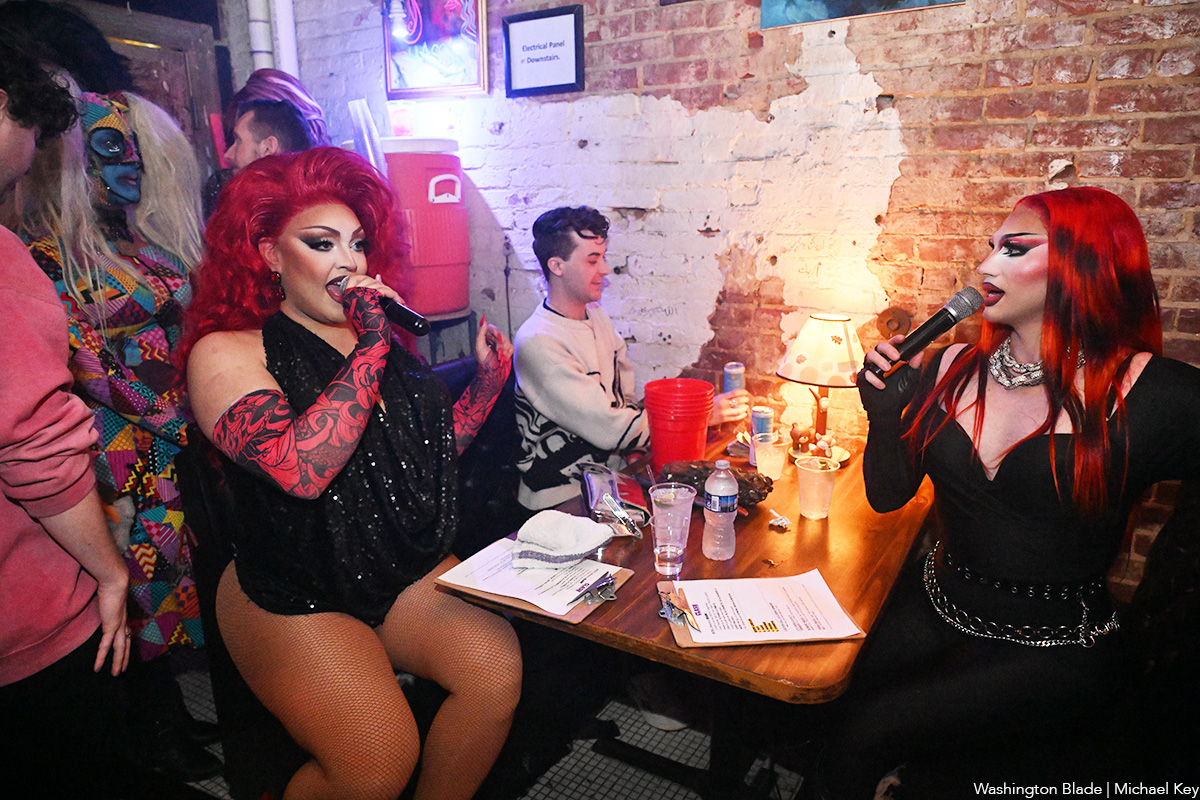
Crimsyn and Tatianna hosted the new weekly drag show Clash at Trade (1410 14th Street, N.W.) on Feb. 14, 2026. Performers included Aave, Crimsyn, Desiree Dik, and Tatianna.
(Washington Blade photos by Michael Key)
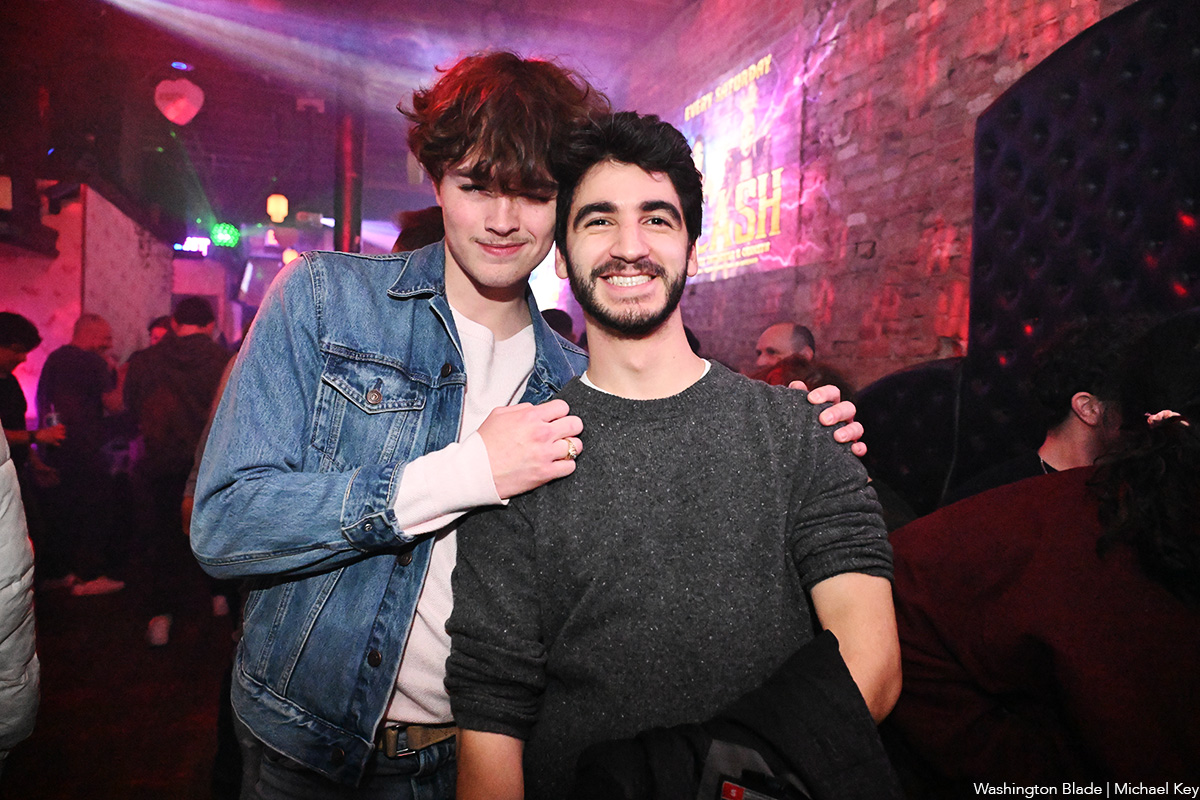
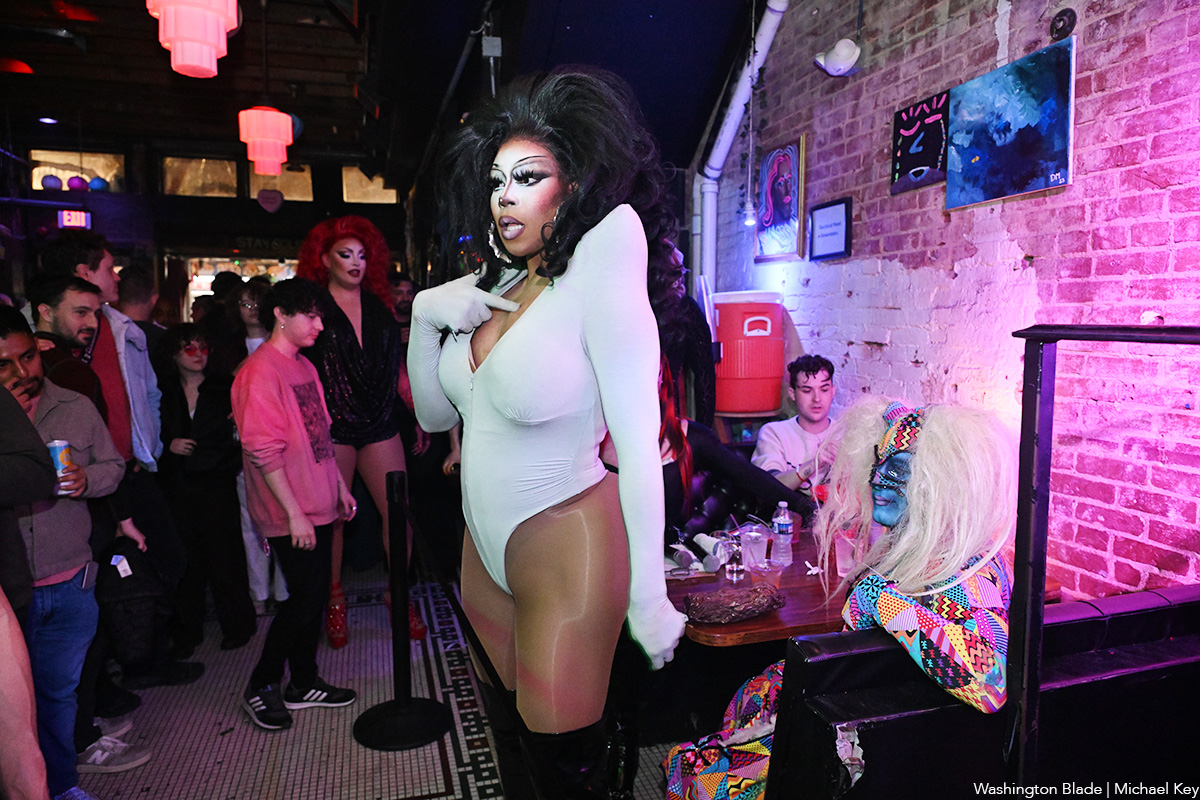
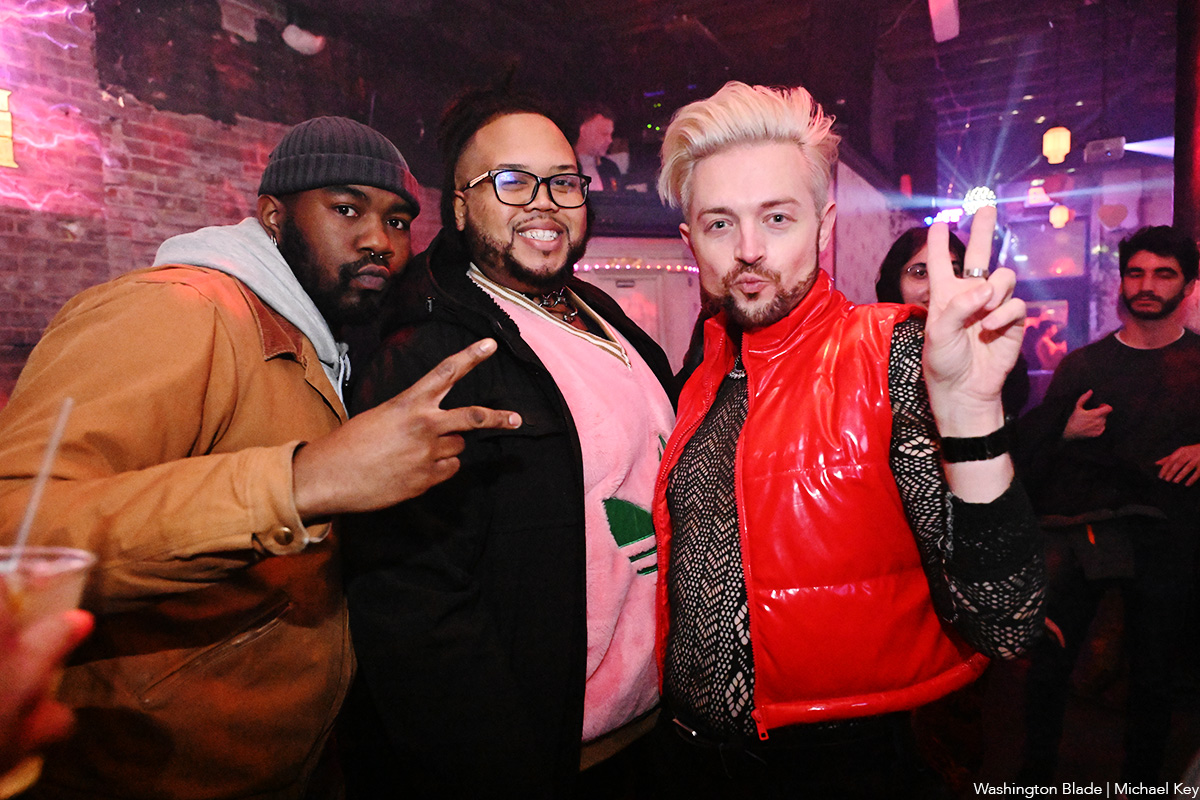
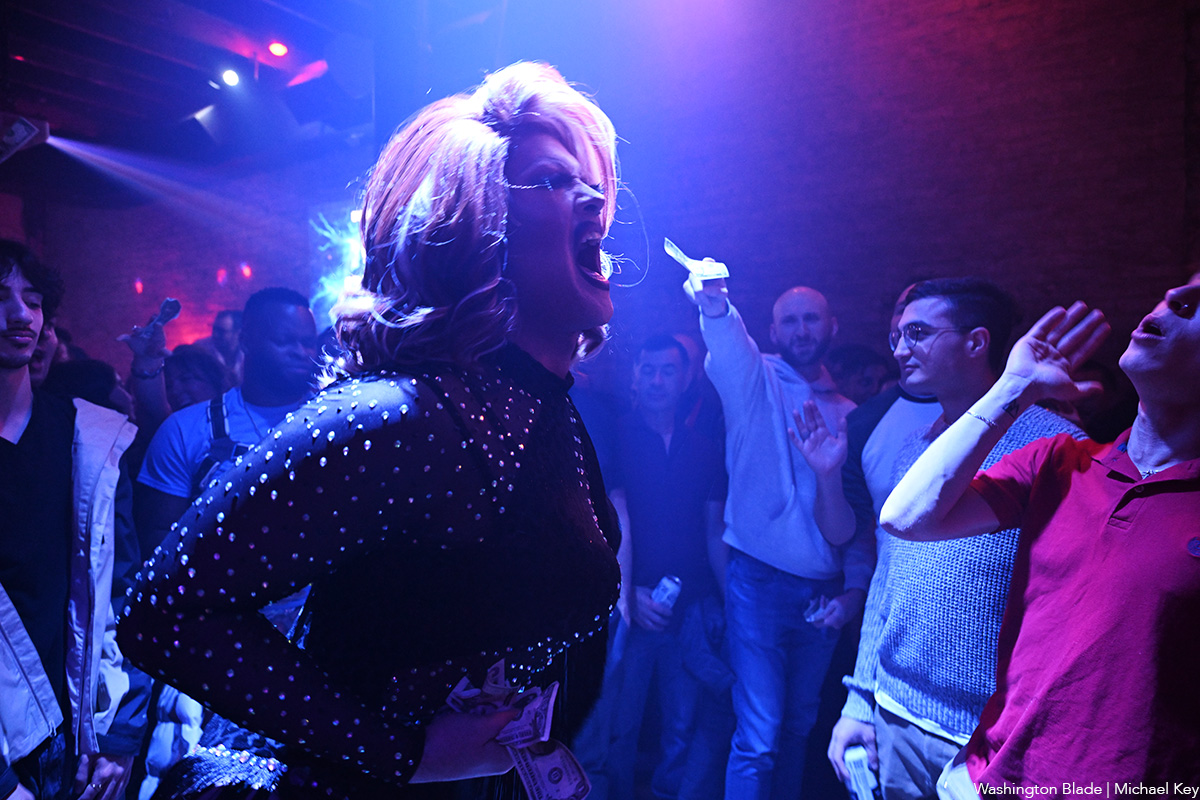
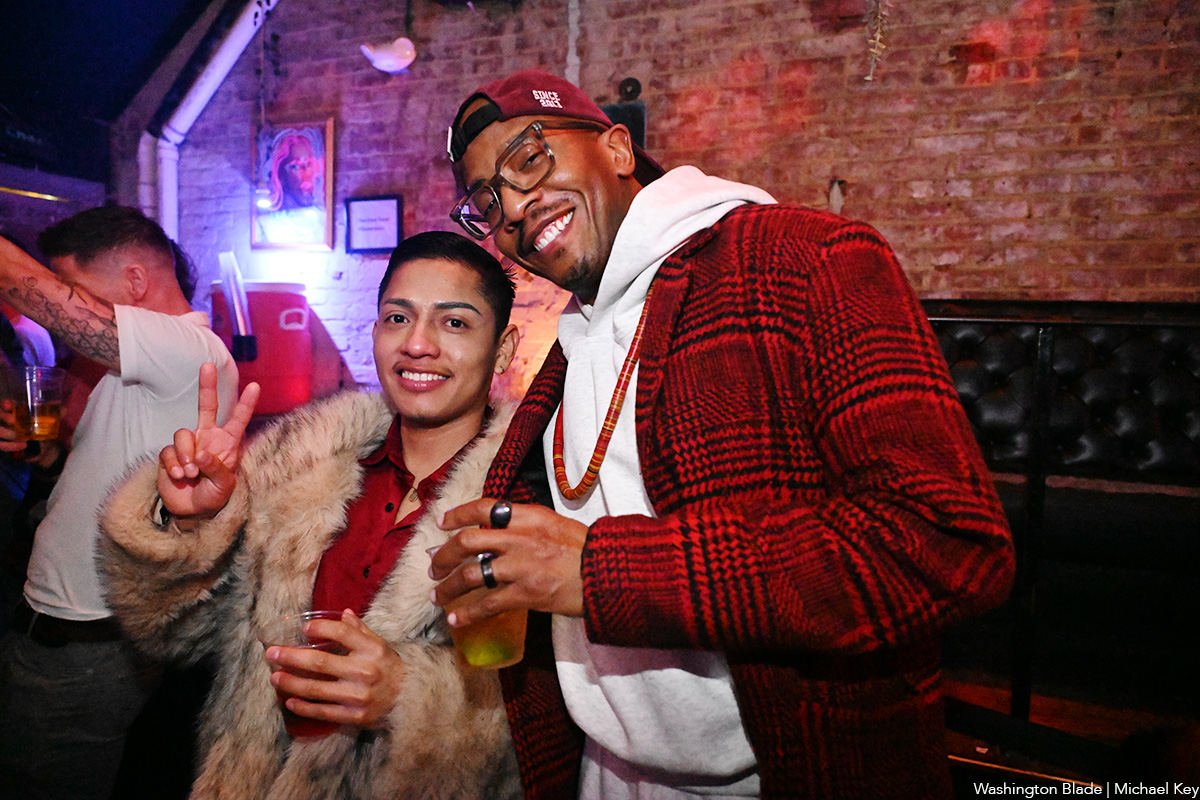
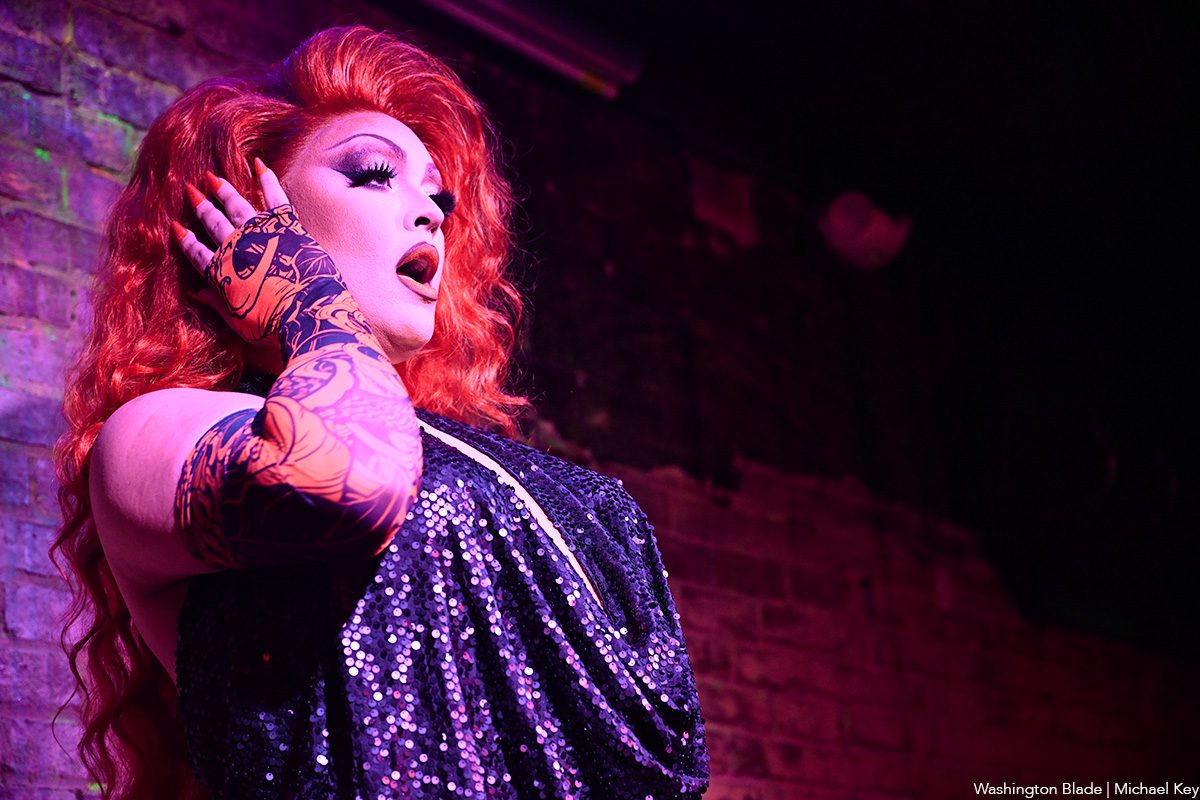
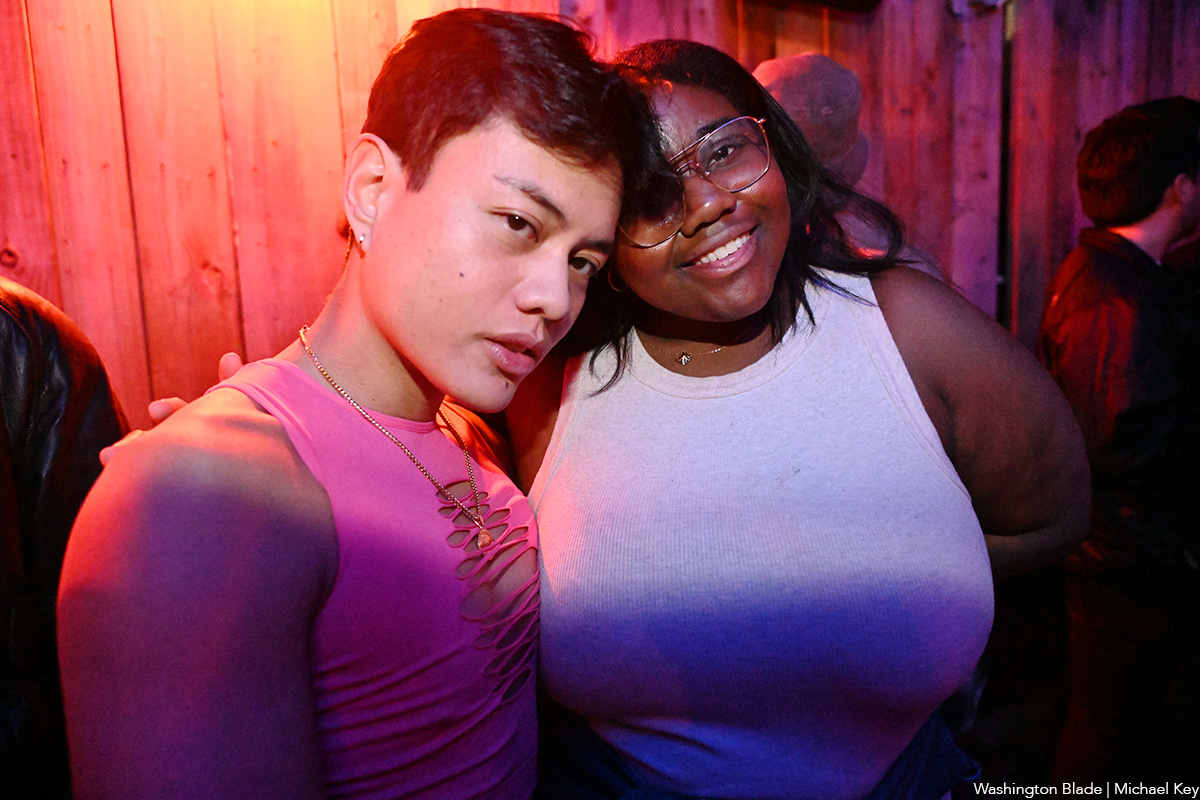
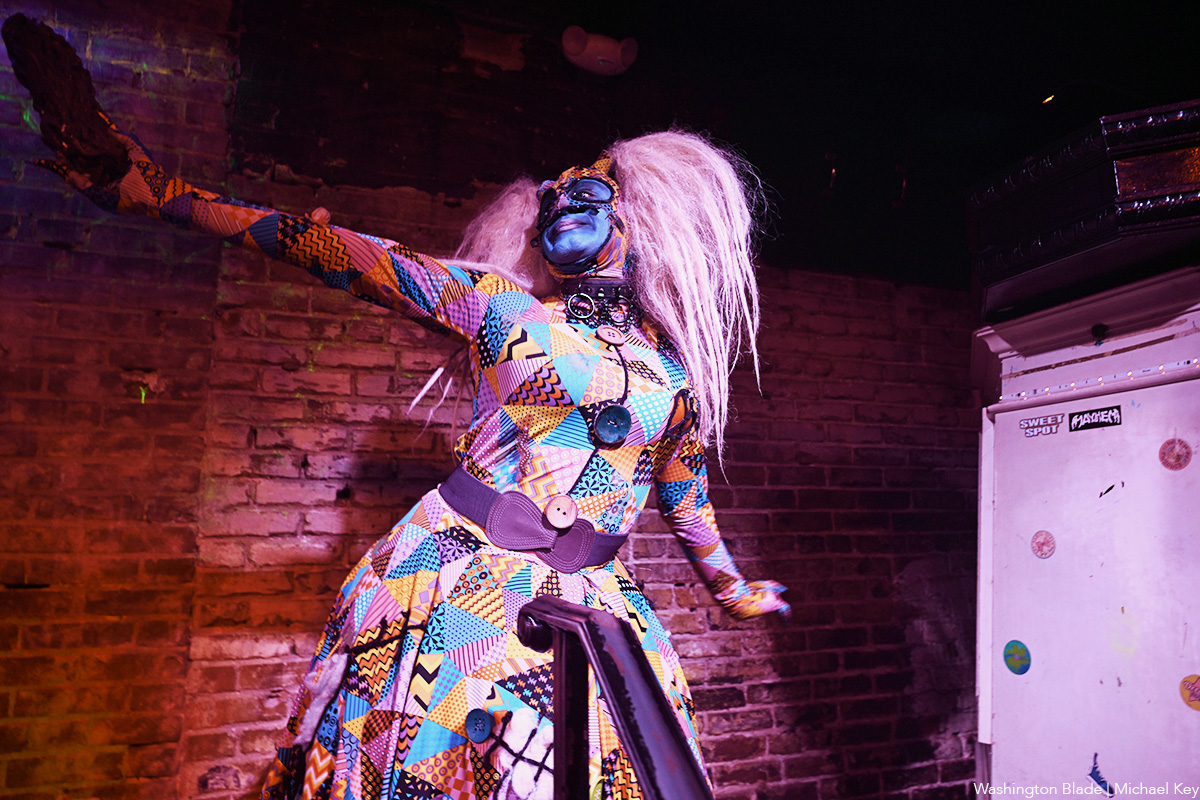
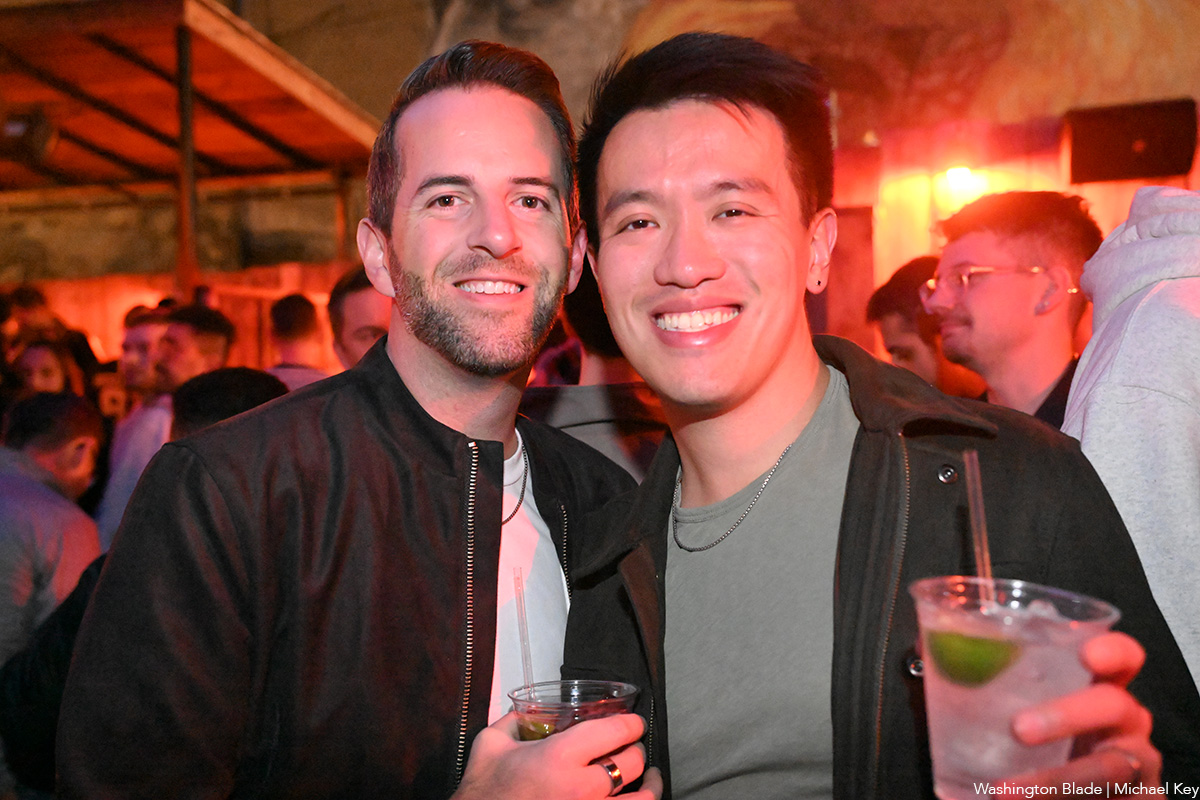
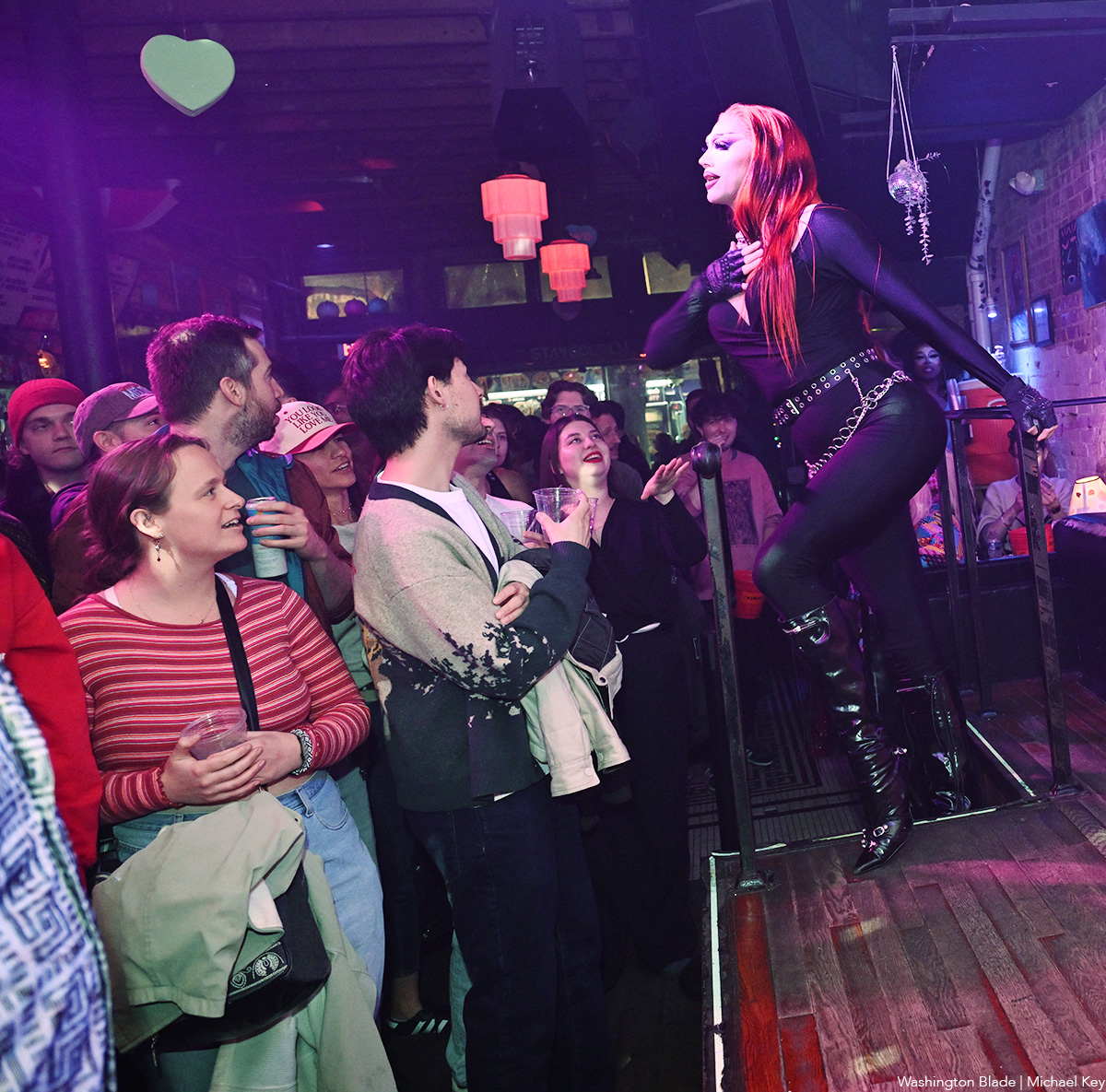
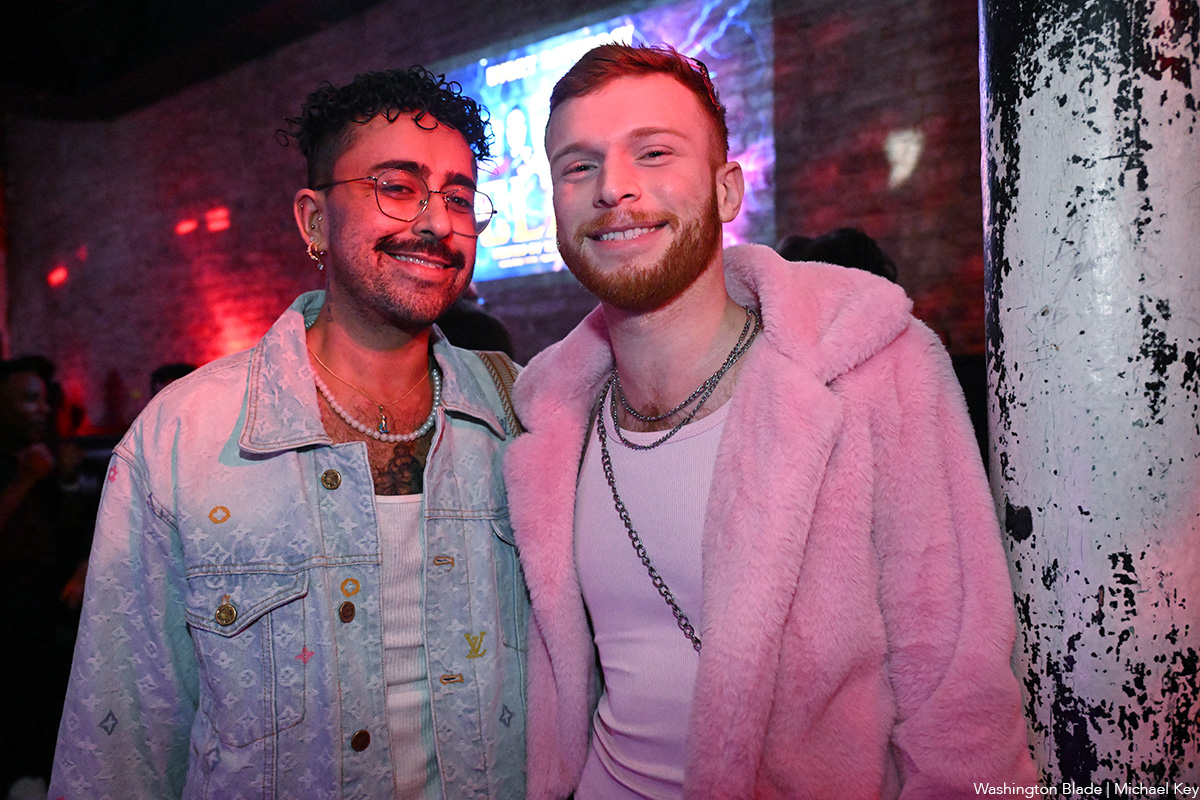
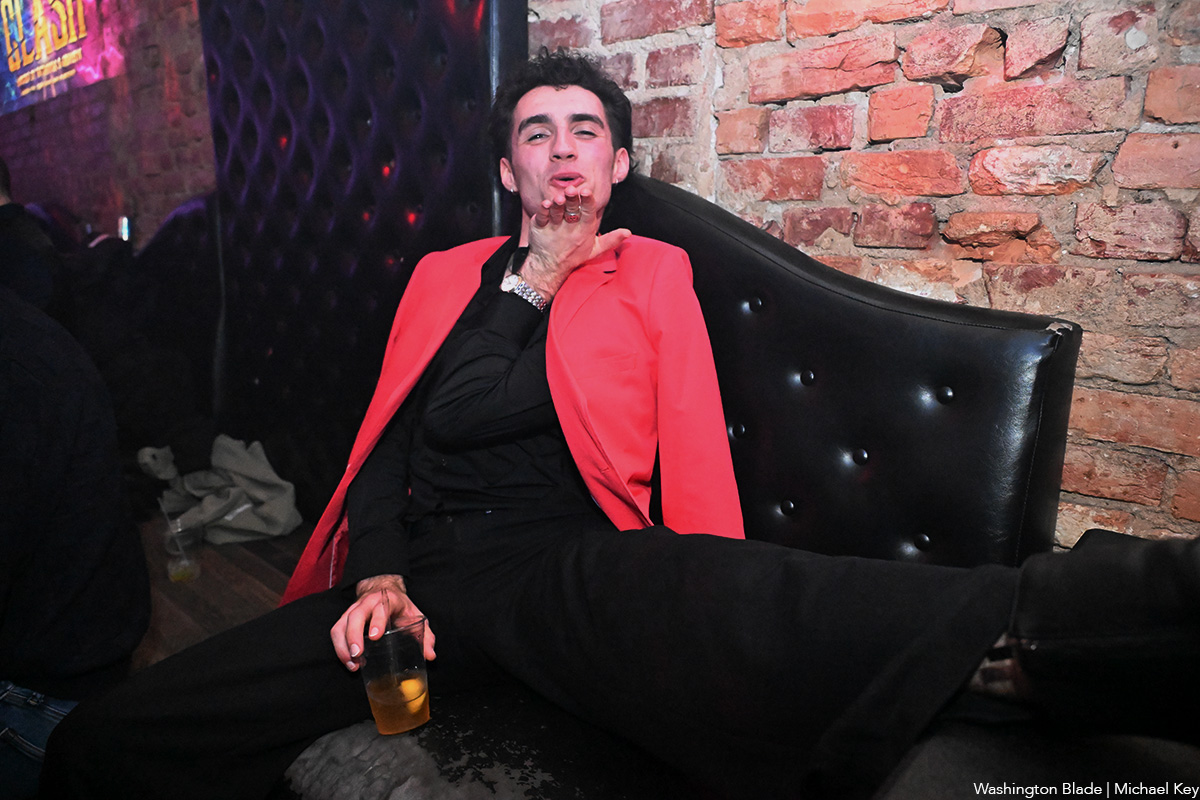
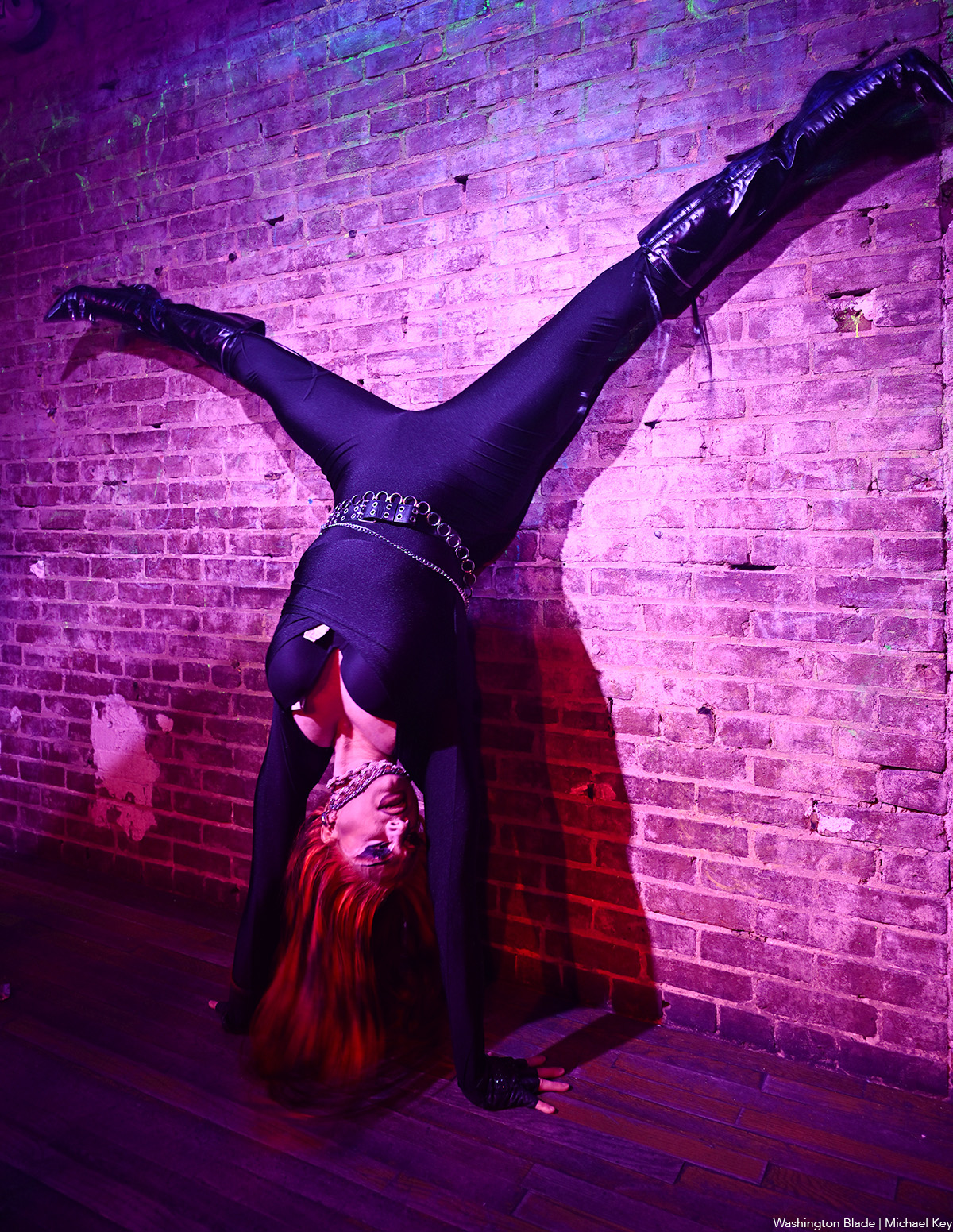
-

 Baltimore4 days ago
Baltimore4 days ago‘Heated Rivalry’ fandom exposes LGBTQ divide in Baltimore
-

 Real Estate4 days ago
Real Estate4 days agoHome is where the heart is
-

 District of Columbia3 days ago
District of Columbia3 days agoDeon Jones speaks about D.C. Department of Corrections bias lawsuit settlement
-

 European Union3 days ago
European Union3 days agoEuropean Parliament resolution backs ‘full recognition of trans women as women’

